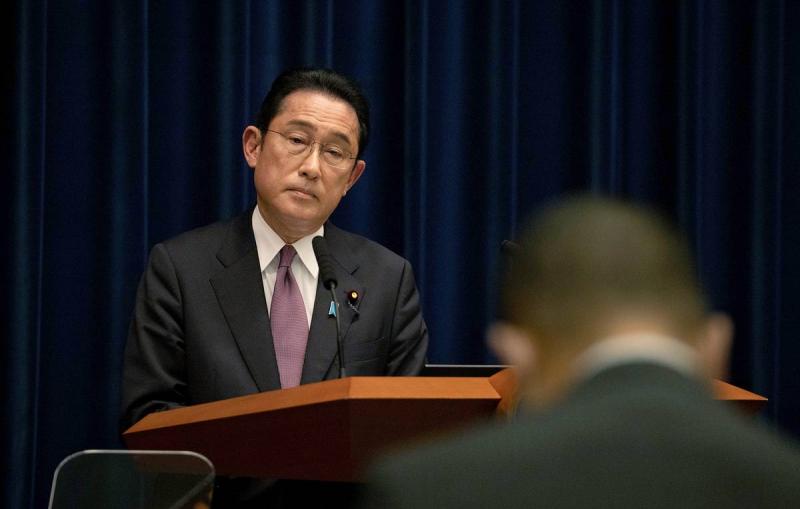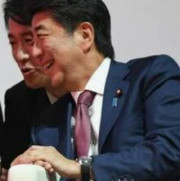
© EPA-EFE/STANISLAV KOGIKU/POOL/TASS
Last week, Japanese Prime Minister Fumio Kishida held a landmark international presentation of his country’s new defense policy. As G7 summit host he visited the capitals of leading European states, ending the tour with a series of public meetings and arrangements in Washington. Japan’s present-day military innovations are equally important as its security treaty of 1951 with the United States, which entitles Washington to take care of post-war Japan's security in exchange for a partial sovereignty renunciation in foreign and defense policy. Now the Japanese seem eager to right the ship a little bit.
The pivot of Japan's military policy looks significant indeed. Tokyo is undertaking a major expansion of its military potential, intending to spend 43 trillion yen ($326 billion) over the next five years, starting in fiscal year 2023.
This money will be particularly used on counter-strike weapons allowing for targeting enemy territories in case of emergency. This refers to refining the Type-12 guided surface-to-ship missile, as well as purchasing hundreds of Tomahawk cruise missiles from the United States with a range of about 1600 km. And certainly, other American weapons and military equipment.
This is a radical step, because Japan used to limit itself to domestic defense tasks alone, as though observing the pacifist provisions of its post-war constitution, with its Self-Defense Forces viewed as a cover for numerous American military bases in Japan in control of the entire APR situation.
Japan's remilitarization details are described in its new National Security Strategy adopted by the Kishida Cabinet on December 16, outlining foreign and security policy principles for the next decade, along with two more specific documents – the National Defense Strategy and the Defense-Strengthening Acceleration Plan. Both see China as Japan’s key security challenge.
The Japanese Prime Minister took this to Europe and America, with the latter given pride of place to as Japan's main military and political ally.
The two leaders reiterated that the Japanese-American military alliance is a security cornerstone in Asia, and the United States expressed readiness to assist Japan in enhancing its military-technical potential. Biden naturally praised Japan's defense decisions as historic, stressing that his country is fully and utterly committed to their bilateral security alliance.
The American president’s phrasing is not accidental, as the Japanese are still haunted by doubt.
First, back under the Obama administration, the Japanese forced the United States to affirm that the Senkaku Archipelago China actively claims falls within the scope of the Japanese-American security treaty. This was supposed to cool down the hot-heads in Beijing, who, in Tokyo’s view, could promote a forceful restoration of Chinese sovereignty over the islands. By the way, during Kishida's current visit to Washington Biden had to once again persuade the ally of this stance remaining in full force and effect. Yet it is still unclear, whether the Americans will really risk a conflict with nuclear-armed China over a foreign ridge of uninhabited islets thousands of miles from their own coast.
Second, Japan always keeps in mind that for the sake of Tokyo, the United States will never sacrifice San Francisco. If DPRK, flexing its nuclear missile muscles, gets into a tussle with Japan, will the United States interfere in the face of a nuclear strike, as North Korean missiles are already capable of reaching its coast?
Third, Japan has not forgotten Donald Trump's killer statements that the sides’ security treaty is an unnecessary thing, because “if we're attacked, Japan doesn't have to do anything. They can sit home and watch Sony television.” For all the goodness of Kishida's current relations with Biden, Tokyo can’t be sure he won’t be replaced by Trump-like-minded politicians. With isolationism rather popular in the United States, its allied relations are alien to sentiment – be it Europe, Afghanistan or Saudi Arabia.
Four, many in Tokyo do not like US stance on Taiwan. Late Prime Minister Shinzo Abe was blunt about deploying American nuclear weapons on the island to deter China and its ambitions. However, the situation in Ukraine has disclosed that the United States loathe the idea of directly interfering with a nuclear power, although ready to use its entire arsenal of soft-power counteraction.
The problem is that in case of tension or conflict, whether in the Senkaku region, the Korean Peninsula, Taiwan, or the South China Sea, where China is actively expanding its military presence, Japan will be cut off from the main sea traffic arteries connecting it with the rest of the world. This is fraught with paralyzed imports of energy, raw materials and foodstuffs, which will inevitably entail an economic collapse. Logistics vulnerability of the island country, almost bereft of mineral resources, is enormous.
Besides, military clashes near Japan may lead to the use of its air and sea space. And its has also declared readiness to give a helping hand to the United States if attacked in the region. All of this implies dragging the country into a severe conflict.
Neither does Tokyo forget about its citizens and economic interests in Taiwan.
So, Japan is ready to fully integrate into America’s anti-Chinese line and hike its military potential to a level which will let it become part of US military planning and management system throughout Eastern Asia. Japan's new National Security Strategy calls for "coordinated operations" with the US military in responding to security threats. In turn, Biden and Kishida said to have aligned their “collective force posture and deterrence capabilities to meet new and emerging threats, including cyber and space ones.”
Late Shinzo Abe was more specific in an interview with The Economist magazine about a year ago: "In the modern era of extended deterrence, I would like Japan and America to discuss when and how to retaliate with nuclear weapons, including in case of the use of tactical nuclear weapons. We should come up with a system that allows Japan to participate in the decision-making process. This would make America’s potential retaliation with nuclear weapons on Japan’s behalf more realistic, which would thus enhance our deterrence." That's the point.
Under Kishida, Japan began to implement these ideas, and in theory, further military integration with the United States should allow Japan have sway over the United States on security issues in the region through a qualitative and quantitative troop buildup.
Things look good on paper, but is Washington satisfied with Japan’s new role? Actually, "take as much sovereignty as you want" is not American-style approach.









